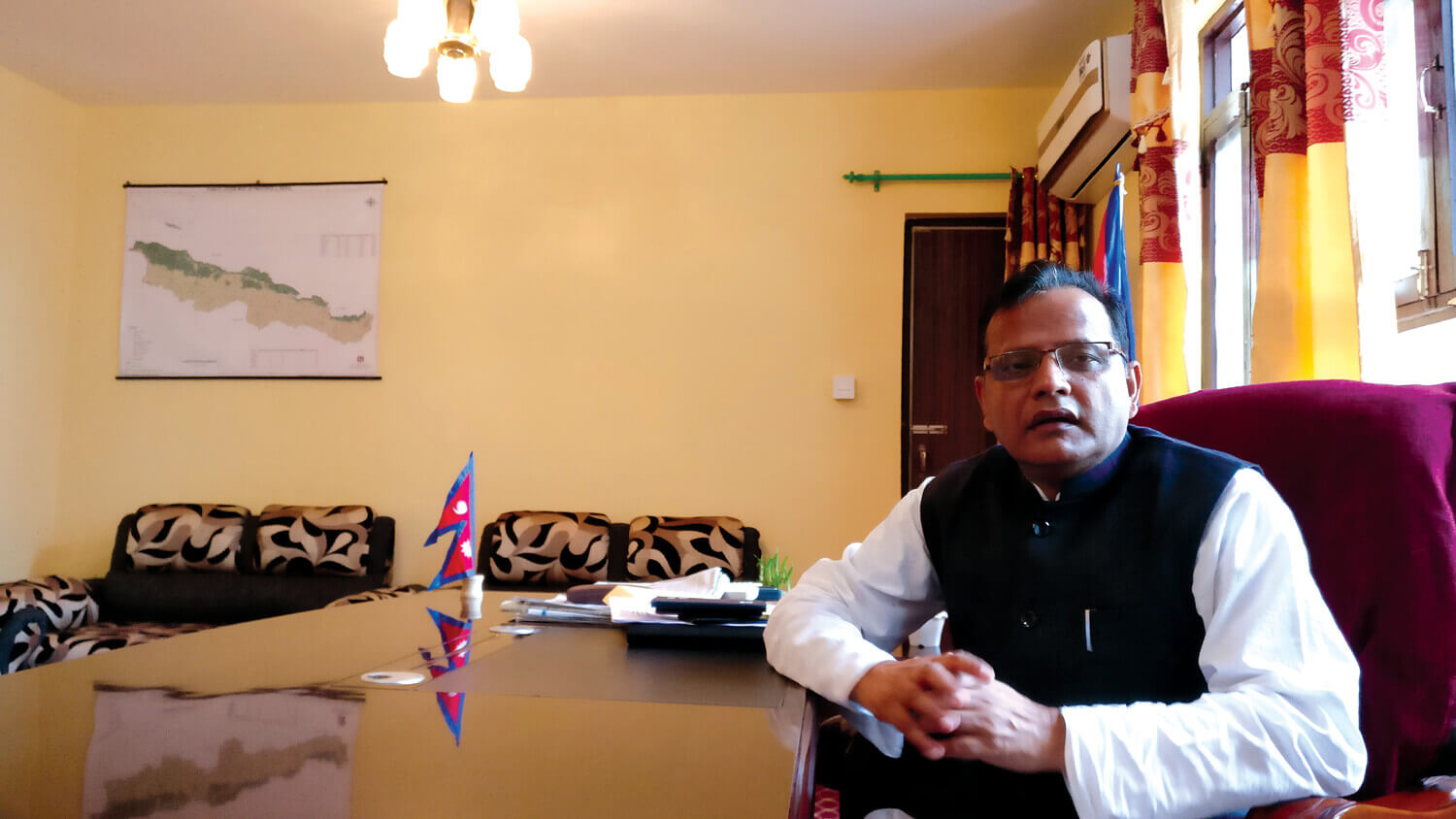Mr Province 2

In his plush and spacious office in the refurbished former Janakpur Cigarette Factory, Chief Minister Lalbabu Raut has his hands full meeting the backlog of demands for development. His mind is in large infrastructure projects and grand new schemes to empower women and “turn Province 2 to Nepal’s number one province”.
In an interview with Nepali Times last week, he said: “Kathmandu has devolved too much authority to municipalities and village councils, bypassing provincial governments.”
Despite this, Raut’s goal is to revive agriculture, promote technical education, improve health services and tackle gender inequality. He is allocating big money for his ‘Save Daughters, Educate Daughters’ campaign in the new budget on Friday.
Read also: From rebels to rulers, Om Astha Rai
Provincial MP Manish Suman says: “We cannot do much with so little authority and resources.”
The Constitution allows provincial governments to collect taxes from just entertainment, tourism and land registration, which is not enough. Finance Minister Yuba Raj Khatiwada allocated Rs16.19 billion for Province 2, which is just 7% of the total federal budget.
“The Centre collects 25% revenue from this province, but gives us back so little,” says Suman. “We did not fight for this kind of federalism. The Centre needs to devolve all power to provinces, except printing currency, foreign affairs and defence.”
During last year’s monsoon, flash floods ravaged Province 2, devastating crops and roads. Relief and reconstruction would have been faster if the region had atuonomy. Or would it?
Read also: TOWARDS A POLICE STATE, Editorial
This year, as the monsoon once again threatens Nepal’s southern plains, there are no visible signs that the eight districts are any better prepared, even though there are 136 new elected municipal and village councils.
As it is, there is a critical shortage of medicines in most health facilities in Janakpur. There won’t even be oral rehydration salts when the floods arrive.
Across the country confusion over budgets and new procurement procedures in the new federal structure has led to a nationwide shortage of medicines.
Dip Narayan Yadav of Benga Health Post in Janakpur says: “We faced shortages even before, but it is more serious this time because we do not know where to complain.”
After local elections, all District Public Health Offices were brought under self-governing local councils. Local governments now have the responsibility of buying and supplying drugs to health posts, but there have been delays.
Janakpur Sub-Metropolitan City was given Rs2.15 million to procure medicines for its health posts, but only put out a tender notice last month. Public Health Officer Mundrika Thakur says that would be too late for the expected epidemics during the monsoon.
Om Astha Rai in Janakpur




